Fantasia 2018, Day 5, Part 2: Mega Time Squad and I Have a Date With Spring
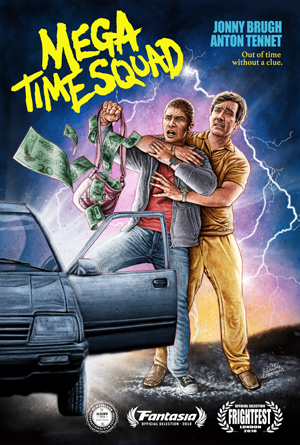 Monday July 16 was an odd day, beginning with the neorealist neo-noir Neomanila and going off in different directions from there. First would come a time-travel comedy from New Zealand, Mega Time Squad. Then a movie that was a kind of pre-apocalyptic film, I Have a Date With Spring, from South Korea. The directors of both the two later movies would be present to take questions.
Monday July 16 was an odd day, beginning with the neorealist neo-noir Neomanila and going off in different directions from there. First would come a time-travel comedy from New Zealand, Mega Time Squad. Then a movie that was a kind of pre-apocalyptic film, I Have a Date With Spring, from South Korea. The directors of both the two later movies would be present to take questions.
The director and writer of Mega Time Squad is Tim Van Dammen. His movie’s about Johnny (Anton Tennet), a loutish but somewhat good-hearted drug dealer in the small New Zealand town of Thames. Alongside his best friend Gaz (Arlo Gibson), Johnny works for the nearest equivalent to a crime lord around, a self-important short-tempered kingpin named Shelton (Jonny Brugh, from What We Do in the Shadows). Ambition leads Johnny to make a try for money being held by a Chinese antique shop owner, which in turn leads to him stealing a Mysterious Item from the shop. The Item turns out to be a limited time machine — once activated, it causes Johnny to return to the same place and time on every subsequent use. Johnny, now on the outs with Shelton, makes a series of bad choices and uses to the Item to bail him out each time, eventually gathering a group of temporal duplicates of himself: the Mega Time Squad. But can he settle things with Shelton, and the Chinese man now hunting him down? And is there any truth to the legend that a vengeful demon will strike down whoever wields the Item?
This is an amiable (if profane) film, clever yet not over-complicated in its temporal mechanics. There’s nothing epic about it at all, and in this case that’s to the good. You don’t feel the stakes are overblown at all, or even especially high — technically Johnny’s life is at stake, but the guys in Shelton’s gang don’t feel like killers; legbreakers, maybe, but not killers. Shelton himself, as played perfectly by Brugh, doesn’t seem the sort to take responsibility for a murder. This is fine, as the result is that the level of danger’s enough to keep things moving but not enough to outweigh the humour.
The time-travel element’s explored in reasonable depth, but doesn’t feel exhaustive. It’s a driver of action, not a thing to be developed for its own sake, and that’s about right. There are a couple of spots (notably in terms of how some of Johnny’s duplicates show up in a particular place) that are a bit confusing to me, but this is a time-travel film, and it’s possible a second viewing would clarify the plot mechanics — which anyway are less important than the general drift of the action. And that’s always clear.
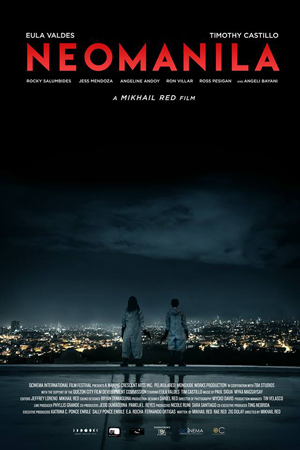 You can tell a bit about an audience at Fantasia just from how they react to what goes on screen before the movie starts. You don’t get trailers before a movie, though sometimes you see a trailer for that year’s festival, using brief clips of several of the films playing that edition of Fantasia; this year’s trailer often drew cheers. You get a couple commercials, from a very limited selection; there’s one particular commercial for Nongshim noodles that’s played for several years and often draws warm applause for its earnestness. And of course there’s the meowing, an audience tradition — after the light goes down and before the movie starts, people in the audience meow, others shush them, still others make other animal noises. How much of any of this you get depends on how playful the audience is, and how excited they are for a crowd-pleasing thrill-ride. Which means, from the noise an audience makes before a film begins, you can tell what kind of a film you’re about to see.
You can tell a bit about an audience at Fantasia just from how they react to what goes on screen before the movie starts. You don’t get trailers before a movie, though sometimes you see a trailer for that year’s festival, using brief clips of several of the films playing that edition of Fantasia; this year’s trailer often drew cheers. You get a couple commercials, from a very limited selection; there’s one particular commercial for Nongshim noodles that’s played for several years and often draws warm applause for its earnestness. And of course there’s the meowing, an audience tradition — after the light goes down and before the movie starts, people in the audience meow, others shush them, still others make other animal noises. How much of any of this you get depends on how playful the audience is, and how excited they are for a crowd-pleasing thrill-ride. Which means, from the noise an audience makes before a film begins, you can tell what kind of a film you’re about to see.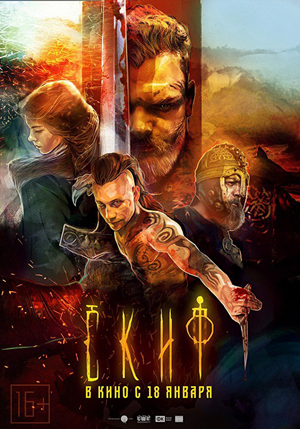 My last movie of Sunday, July 15, was a film I knew little about going in. It was The Scythian (Skif, Скиф), a Russian film directed by Rustam Mosafir from a script he wrote with Vadim Golovanov. It started late, and for most of the day I’d been unsure whether I’d stick around to watch it; in the 11 hours between leaving my house and the time it started, I’d ingested a few handfuls of peanuts, one (1) tin of off-brand cola, and a few mouthfuls of water. Still, I took my seat, the movie started, and then I quit paying attention to my physical body for one hour and forty-seven minutes. The Scythian is one of the best action films I’ve seen in years. It’s engagingly violent, and the violence is done well — but more than that, it’s filled with cleverness and unexpected twists. If you’re a fan of sword-and-sorcery or sword-and-sandal movies, you owe it to yourself to see this movie, and as soon as possible. (And I note it’s being released August 14 under the title The Last Warrior on VOD, Blu-Ray, and DVD.)
My last movie of Sunday, July 15, was a film I knew little about going in. It was The Scythian (Skif, Скиф), a Russian film directed by Rustam Mosafir from a script he wrote with Vadim Golovanov. It started late, and for most of the day I’d been unsure whether I’d stick around to watch it; in the 11 hours between leaving my house and the time it started, I’d ingested a few handfuls of peanuts, one (1) tin of off-brand cola, and a few mouthfuls of water. Still, I took my seat, the movie started, and then I quit paying attention to my physical body for one hour and forty-seven minutes. The Scythian is one of the best action films I’ve seen in years. It’s engagingly violent, and the violence is done well — but more than that, it’s filled with cleverness and unexpected twists. If you’re a fan of sword-and-sorcery or sword-and-sandal movies, you owe it to yourself to see this movie, and as soon as possible. (And I note it’s being released August 14 under the title The Last Warrior on VOD, Blu-Ray, and DVD.)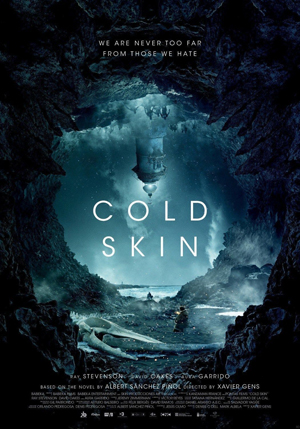 My third movie on Sunday, July 15, was a France-UK co-production called Cold Skin. It was scheduled to start at 5:10 in the Hall Theatre, and ran 107 minutes. At 7:15, across the street at the De Sève, there’d be a showing of the 1911 Italian film L’Inferno, an adaptation of the first part of Dante’s Divine Comedy. Musical accompaniment to the silent film would be provided by Maurizio Guarini of Italian prog band Goblin, well-known for providing the soundtrack to Dario Argento’s
My third movie on Sunday, July 15, was a France-UK co-production called Cold Skin. It was scheduled to start at 5:10 in the Hall Theatre, and ran 107 minutes. At 7:15, across the street at the De Sève, there’d be a showing of the 1911 Italian film L’Inferno, an adaptation of the first part of Dante’s Divine Comedy. Musical accompaniment to the silent film would be provided by Maurizio Guarini of Italian prog band Goblin, well-known for providing the soundtrack to Dario Argento’s 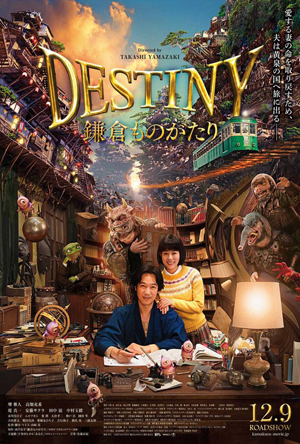 Sunday, July 15, was going to be my first really busy day of the Fantasia Film Festival. There were four movies I planned to see, with a chance of a fifth, depending on how things worked out. The day’d begin at the Hall Theatre; first, I’d see Destiny: The Tale of Kamakura, a lighthearted Japanese urban fantasy. Then would come Aragne: Sign of Vermillion, also from Japan, a horror anime.
Sunday, July 15, was going to be my first really busy day of the Fantasia Film Festival. There were four movies I planned to see, with a chance of a fifth, depending on how things worked out. The day’d begin at the Hall Theatre; first, I’d see Destiny: The Tale of Kamakura, a lighthearted Japanese urban fantasy. Then would come Aragne: Sign of Vermillion, also from Japan, a horror anime.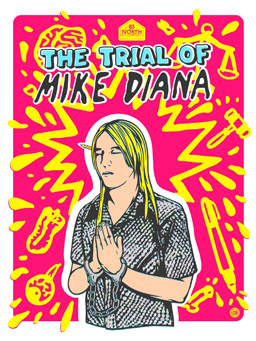 After my first two films last Saturday, I left the large Hall Theatre to see a documentary in the 150-plus-seat De Sève Theatre across the street. The documentary was called Boiled Angels, and it presented the case of zinester and comics creator Mike Diana, whose transgressive work led to him being arrested and put on trial in Florida in the 1990s. I’d followed Diana’s plight at the time through reports in The Comics Journal, and was intrigued to learn more about it now. But if I personally was interested in the film as a look at comics history, I was surprised to find that much of the rest of the crowd was drawn by the chance to see new work by horror director Frank Henenlotter, creator of works like Bad Biology, Frankenhooker, Brain Damage, and Basket Case.
After my first two films last Saturday, I left the large Hall Theatre to see a documentary in the 150-plus-seat De Sève Theatre across the street. The documentary was called Boiled Angels, and it presented the case of zinester and comics creator Mike Diana, whose transgressive work led to him being arrested and put on trial in Florida in the 1990s. I’d followed Diana’s plight at the time through reports in The Comics Journal, and was intrigued to learn more about it now. But if I personally was interested in the film as a look at comics history, I was surprised to find that much of the rest of the crowd was drawn by the chance to see new work by horror director Frank Henenlotter, creator of works like Bad Biology, Frankenhooker, Brain Damage, and Basket Case. 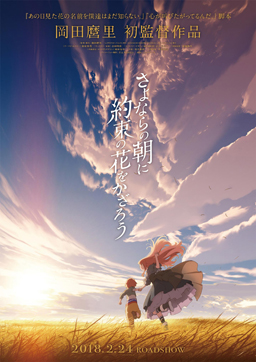 Weekend days are busy days at the Fantasia film festival. Weekends are when most people are most often free to see movies, so the programmers obligingly schedule a lot of films for Saturdays and Sundays. Last Saturday I had three movies I wanted to see. On the Sunday, I had five. Which meant that Fantasia was well and truly underway.
Weekend days are busy days at the Fantasia film festival. Weekends are when most people are most often free to see movies, so the programmers obligingly schedule a lot of films for Saturdays and Sundays. Last Saturday I had three movies I wanted to see. On the Sunday, I had five. Which meant that Fantasia was well and truly underway.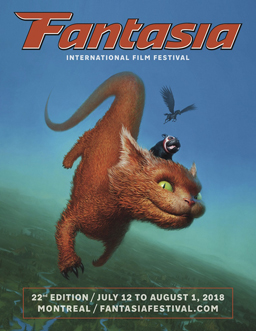 Fantasy’s described by fantasy: consider John Crowley’s Little, Big, a novel about a faerieland where the further in you go the bigger the land becomes. A powerful image, it echoes the way fascinations gain in depth and scope the more you explore them. How familiar experiences can become strange the more you dig deeper into them, birthing mystery, growing weird. Art and story perhaps most of all. So I am about to begin my coverage of the
Fantasy’s described by fantasy: consider John Crowley’s Little, Big, a novel about a faerieland where the further in you go the bigger the land becomes. A powerful image, it echoes the way fascinations gain in depth and scope the more you explore them. How familiar experiences can become strange the more you dig deeper into them, birthing mystery, growing weird. Art and story perhaps most of all. So I am about to begin my coverage of the 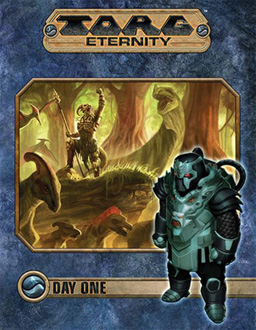 Last Sunday I ran my first session of Torg Eternity, meaning I can now finish my review of the game by discussing how the rules worked in practice (the first part is
Last Sunday I ran my first session of Torg Eternity, meaning I can now finish my review of the game by discussing how the rules worked in practice (the first part is 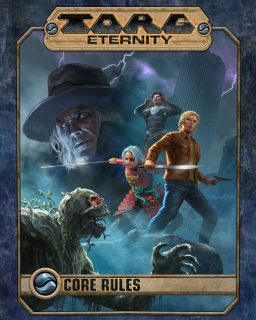 Later today, early tomorrow, sometime next week, the world began to end.
Later today, early tomorrow, sometime next week, the world began to end.